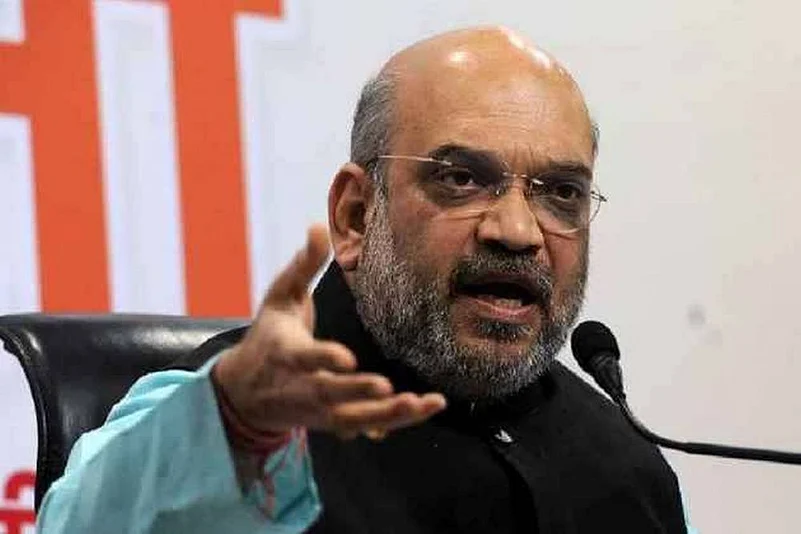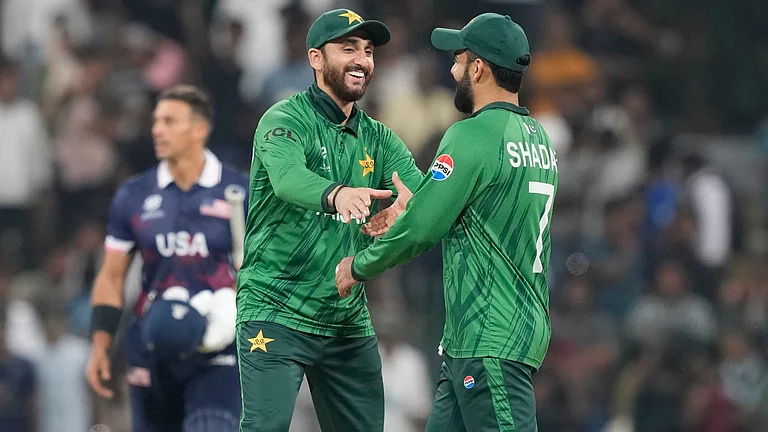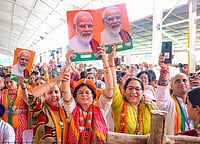BJP president Amit Shah arrives in Jammu on Sunday, 10 days after the deadly Pulwama terror attack, which has not only strained India-Pakistan relations but brought up regional and religious fault lines between the Jammu and Kashmir regions of the state.
Shah’s programme was drawn up much in advance. He was expected to meet the Panna Pramukhs (voter list in-charge), but the programme was changed after the Pulwama attack. He will pay homage to those killed in the February 14 terror attack in Pulwama, about 250 km from here, and is also expected to meet the senior party leadership to review preparations for the forthcoming parliamentary elections and also address a public rally
The last time Shah addressed a rally in Jammu was on June 23, 2018, about a week after the BJP withdrew support to the PDP. He had then said that sections of the media were creating a narrative of linking anti-terror operations to Governor’s Rule while “our narrative is of development”.
Incidentally, last year the security forces killed the highest number of terrorists in a decade.
The tone and tenor of Shah's speech on Sunday in Jammu city, about 40 km from the India-Pakistan border, will be important for more than one reason. Firstly, it will reflect the government's post-Pulwama approach, and the message it intends to send across the border. While Kashmir valley has suffered heavily due to terrorism, Jammu region has been a victim of cross-border firing. And, it stands to suffer most if there is escalation of tension along the borders in this sector.
Secondly, his address will be before the crucial hearing on Article 35-A, which gives legal cover to Article 370, in the Supreme Court where according to reports the government may make a crucial oral statement on it.
In his last address here, Shah said that RSS ideologue Shyama Prasad Mookerjee agitated to change the then permit system needed to travel to J&K and sacrificed himself.
In Jammu, there is a strong constituency for revocation of Article 370 while in Kashmir valley it is seen as tied to their “identity". Shah's speech may touch on this issue with the larger pan-India audience where “anti-Kashmir" voices have taken a violent turn and with parliamentary elections approaching.
In Assam last week, Shah had said BJP will not allow Assam to become “another Kashmir”. Shah's speech will be watched on this crucial issue and how he aims to consolidate BJP's Hindu vote bank here.
The Centre has decided to go tough against separatists after the Pulwama attack and has withdrawn the security of 155 leaders, including 18 Hurriyat leaders, -- a move criticised not only by PDP president Mehbooba Mufti but also by BJP's ally Sajad Lone of Peoples Conference.
Prime Minister Narendra Modi in his address in Tonk, Rajasthan, on Saturday said the government will crush terror. Shah in his last speech didn't go too hard against Mehbooba Mufti though he accused her of being biased against Jammu.
With separatism and terrorism now the major concern in India, Shah's speech will be watched for how the BJP takes on their sympathisers and what message he intends to give the separatists’ constituency in the valley, especially when J&K is under direct Centre's control with the imposition of President’s rule.
The most important aspect of his speech, much awaited here, is how he will reach out to the Kashmiri youth who have been harassed and attacked in many places in the country and have returned to their homes.
PM Modi on Saturday reached out to them by stating that the fight is against terrorism and not Kashmiris and condemned such attacks.
Jammu has witnessed widespread violent protests post Pulwama.
Cars bearing Kashmir registration numbers were set on fire, clashes between two communities too were reported and relations between Kashmir and Jammu regions were strained.
How Shah will do the balancing act -- of putting balm on the Kashimirs and not sound against Jammu for the violence -- will be the most watched key factor which will set the narrative rolling, not only for the parliamentary but State elections too as both NC and PDP had ruled out post-poll alliance with BJP.






















.png?w=200&auto=format%2Ccompress&fit=max)



